- Minds x Machines
- Posts
- Is your AI AGE older than your Real Age?
Is your AI AGE older than your Real Age?
How the way you use ChatGPT reveals the year you were born
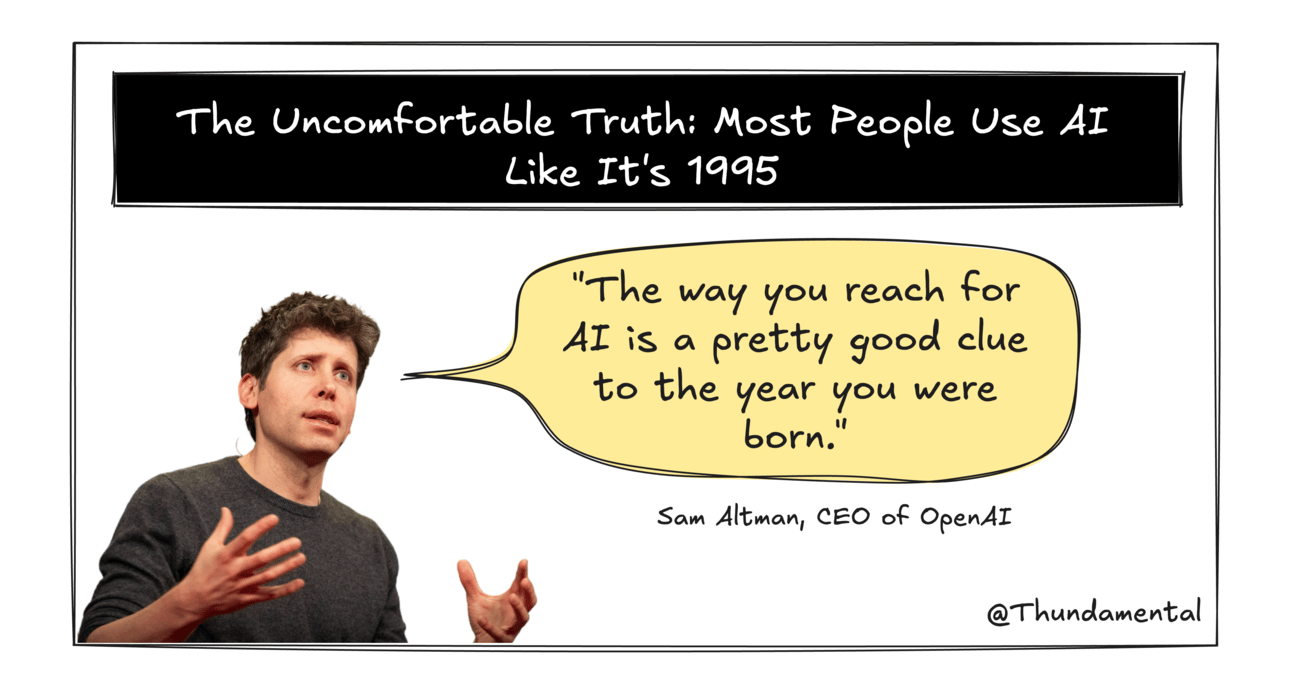
Is your AI AGE older than your Real Age?
How the way you use ChatGPT reveals the year you were born
At Sequoia Capital's AI Ascent event in early May 2025, OpenAI CEO Sam Altman dropped a casual observation that has been ricocheting across tech circles ever since: "The way you reach for AI is a pretty good clue to the year you were born."
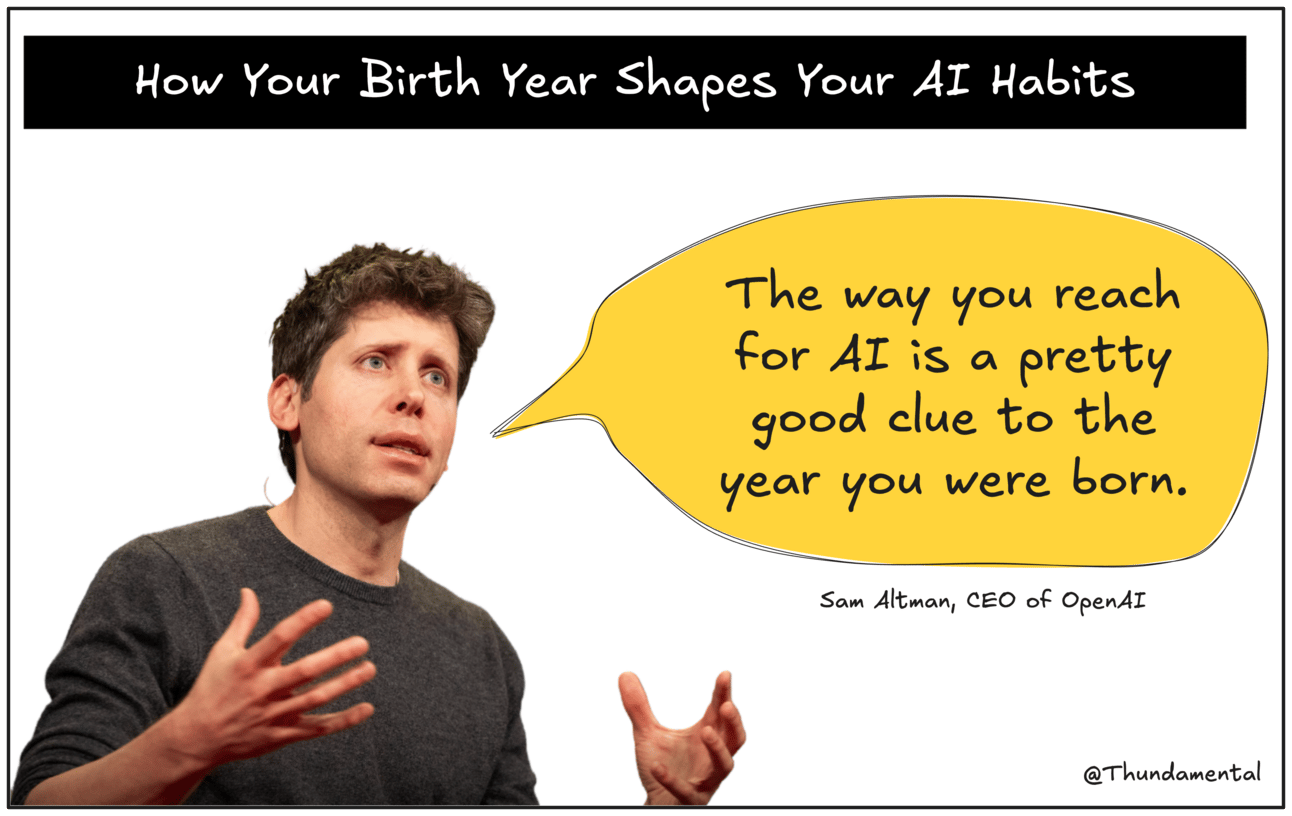
What started as a lighthearted comment has sparked serious debate about how different generations integrate AI into their lives. Altman acknowledged it was a "gross oversimplification," yet the patterns he described are undeniably striking:
Boomers and older Gen X treat ChatGPT like a turbo-charged Google search bar
Twenty- and thirty-somethings lean on it as a personal life or career adviser
College students and teens wire it in everywhere—almost like an operating system—and often won't make big decisions before "asking ChatGPT"
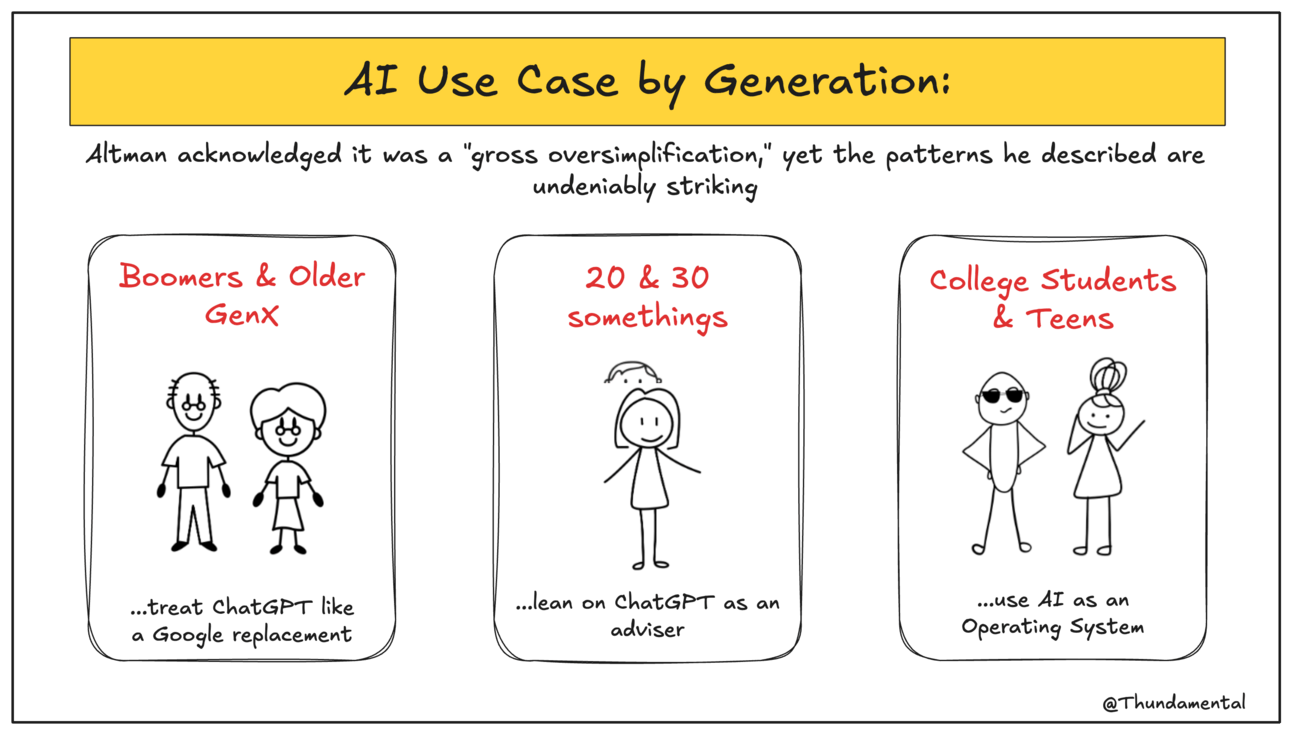
It's reminiscent of the early smartphone era, when every kid seemed to intuitively master the technology while adults fumbled through basic functions.
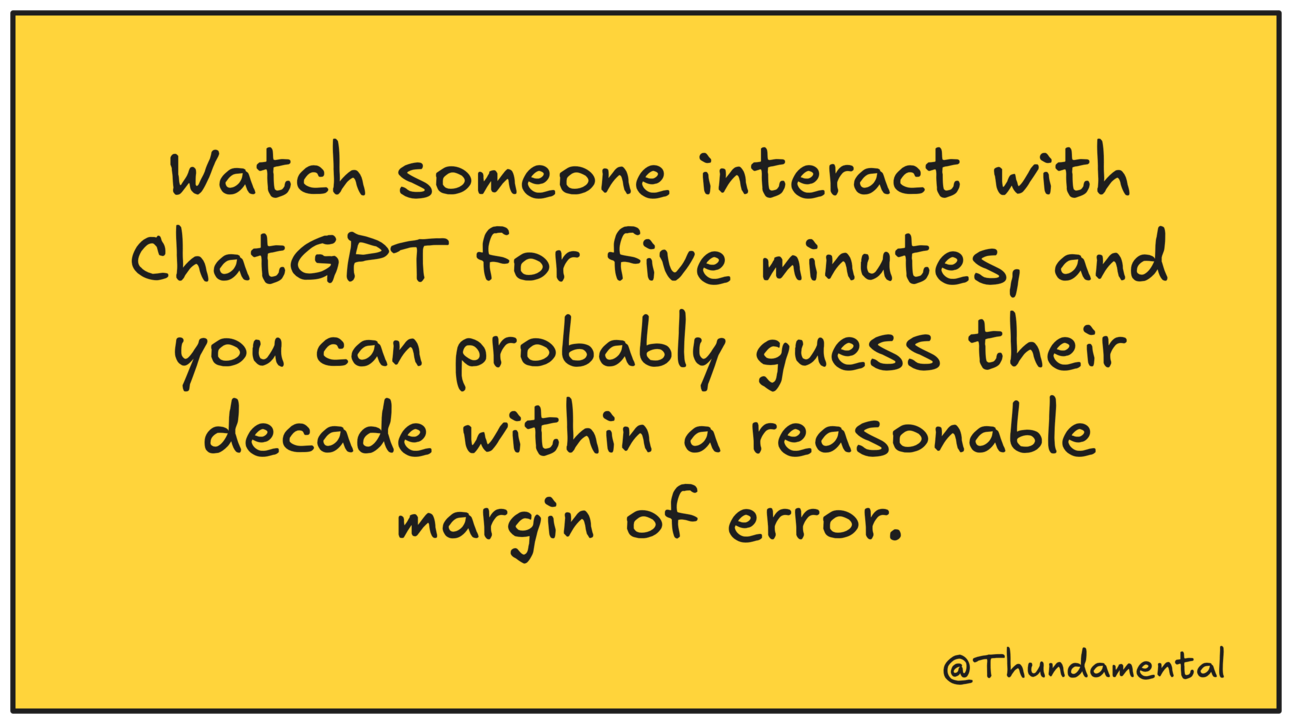
But here's what makes this observation deeper than just another generational stereotype: your AI Age is showing, and it's probably embarrassing.
Your AI Age Is Showing (And It's Probably Embarrassing)
You know those brutally honest health assessments that calculate your "real" age?Discovery's Vitality Age will cheerfully inform you that despite your kale smoothies and marathon training, you're biologically 43 when you're chronologically 36 😱.
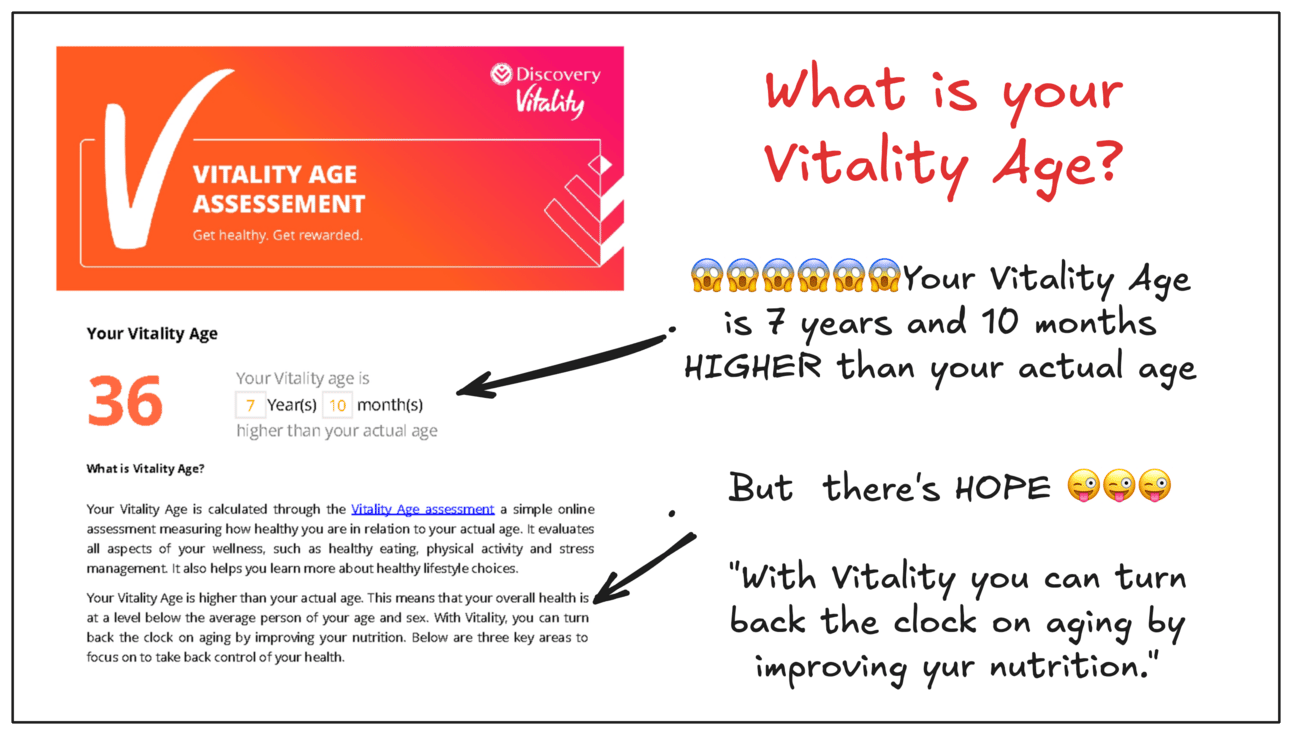
Well, welcome to the AI Age assessment—except instead of judging your cardio habits, it's exposing how you think about intelligence itself.
The concept is devastatingly simple: your AI Age reflects not when you were born, but how you've learned to interact with artificial intelligence.
Your AI Age isn't about when you were born—it's about when you stopped learning.
Through extensive "research", I've managed to slash my AI Age by 15 years below my chronological age. It's the first time I've successfully reversed any aging process since I stopped discovering new music . Honestly, I'm considering adding it to my LinkedIn profile ;-)
But here's the uncomfortable truth: your AI Age is probably showing in embarrassing ways. How you phrase prompts, what you assume AI can't do, whether you integrate it into your workflow—it all broadcasts your mental model of intelligence with brutal clarity.
The Great AI Age Reveal: How You Use AI Betrays Your AI Age
Once you start paying attention, the patterns are painfully obvious. Sam Altman's observation cuts deep because the same ChatGPT interface reveals three completely different relationships…
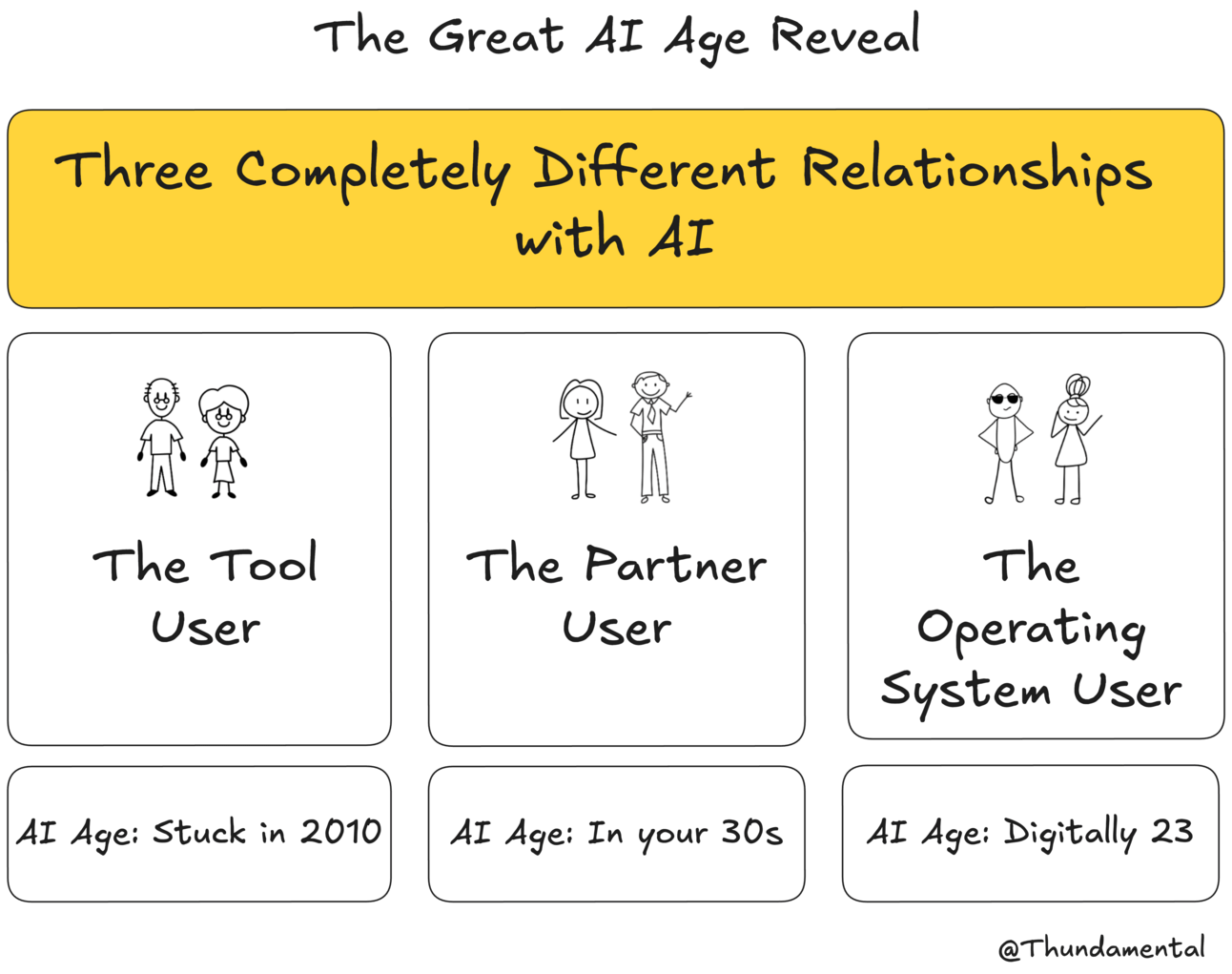
…and each one ages you instantly:
The Tool User (AI Age: Stuck in 2010)
You see AI as sophisticated software with inputs and outputs. Ask question, get answer, transaction complete. It feels safe because it maps onto decades of software experience, but you're essentially using a Ferrari as a very expensive calculator. You've trained yourself to expect predictable results from unpredictable intelligence.
You probably still say "www" when giving someone a website address.
The Partner User (AI Age: Getting Warmer)
You see AI as a collaborator. You're comfortable with messy back-and-forth, refining ideas together, and the AI not nailing it on the first try. You've figured out that the conversation often matters more than any single response. You're having actual dialogues instead of conducting interviews.
You've stopped apologising to ChatGPT when you ask follow-up questions.
The Operating System User (AI Age: Digitally 23)
You see AI as environmental infrastructure—like electricity or Wi-Fi. It's woven so seamlessly into your workflow that separating "AI tasks" from "regular tasks" becomes meaningless. You don't "use" AI any more than you "use" the internet. It's just... there, augmenting your thinking in real-time.
You've started having better conversations with AI than with most humans.
This is what Altman calls the "operating system generation"—college students who've integrated AI so deeply that they "don't really make life decisions without asking ChatGPT what they should do." They've built elaborate workflows with memorised prompts, file connections, and personalized setups that would impress tech professionals. For them, AI isn't a tool you use—it's infrastructure you live on.
Why People Get Stuck (And How to Break Free)
Here's what'll really sting: most people crystallised their interaction style in their first three ChatGPT sessions and never evolved. They found something that worked once and sentenced themselves to a lifetime of mediocre results.
Your early AI experiences created invisible boundaries around what you think is possible.
Maybe you asked ChatGPT to write an email in December 2022. It worked perfectly, so now you only use it for writing tasks.
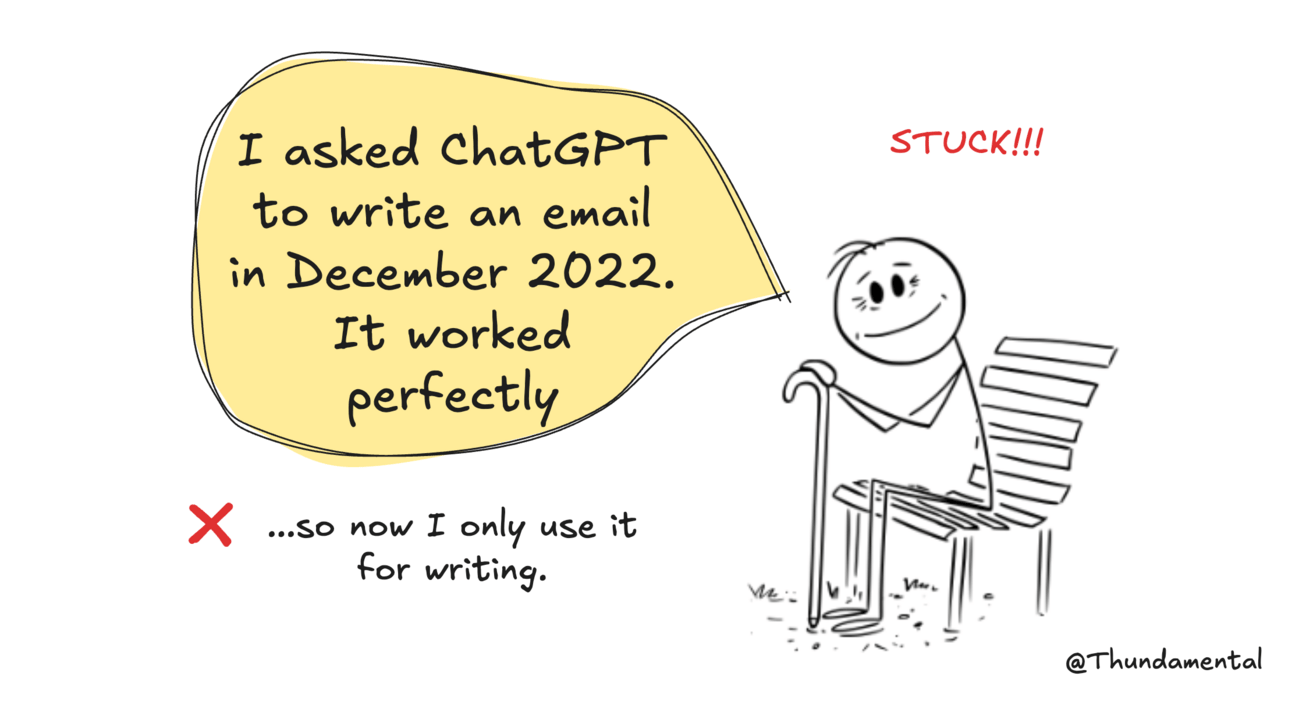
Or you tried it for coding help once, got frustrated, and wrote off the entire category.
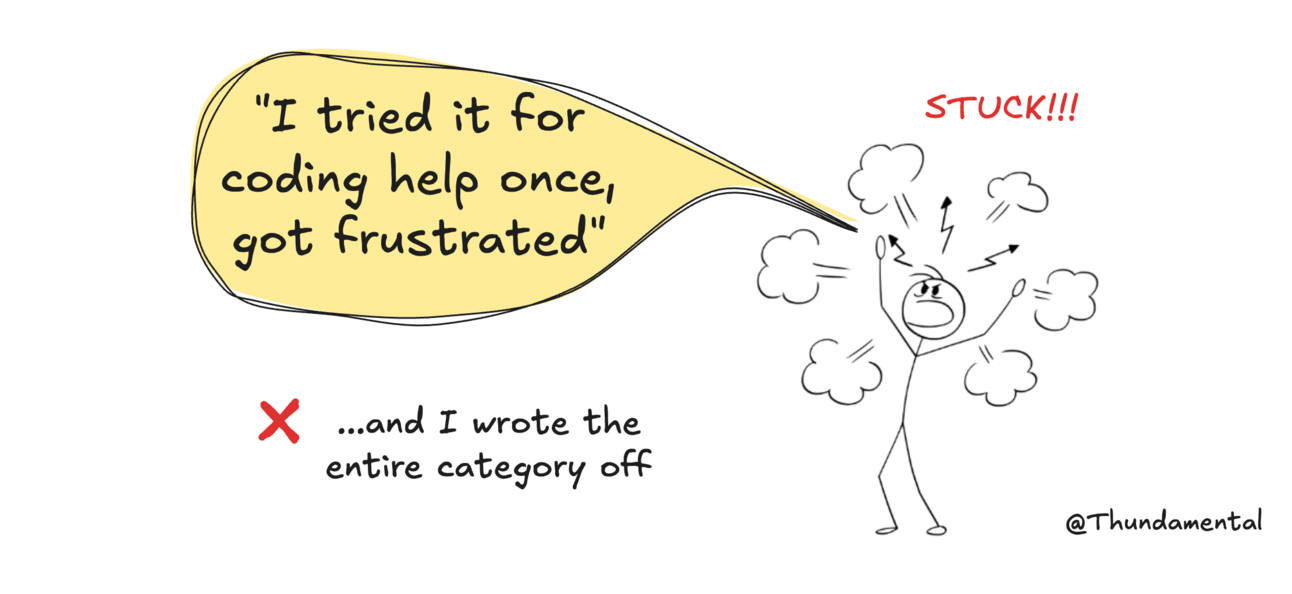
Perhaps someone showed you a "perfect prompt formula," and now you think every interaction needs to follow a rigid template.
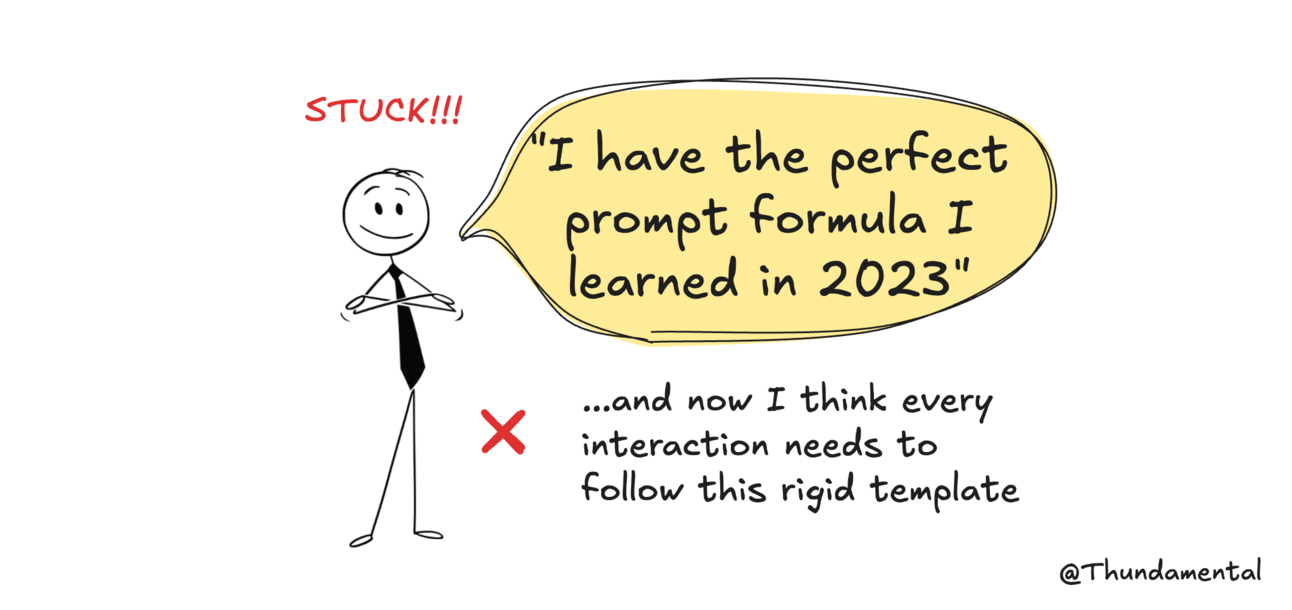
These early experiences don't just influence your usage—they crystallise it. Like water freezing into ice, your flexible potential hardens into fixed patterns. Breaking out requires energy most people never apply.
There's an entire industry built around making AI feel technically complex. Prompt engineering courses, framework methodologies, optimisation strategies—all designed to make you feel like you need special expertise to have a conversation.
The most sobering moment for any manager is realising their 'tech-savvy' team has an average AI age somewhere between dial-up internet and fax machines.
Here's the truth that'll save you money and lower your AI Age instantly: good prompts are just good questions. And good questions come from clear thinking, not technical tricks.
The most effective AI users don't use complex frameworks. They just think out loud, the same way they would with a smart colleague—someone who never gets tired, never gets offended, and never stops wanting to help you think better.
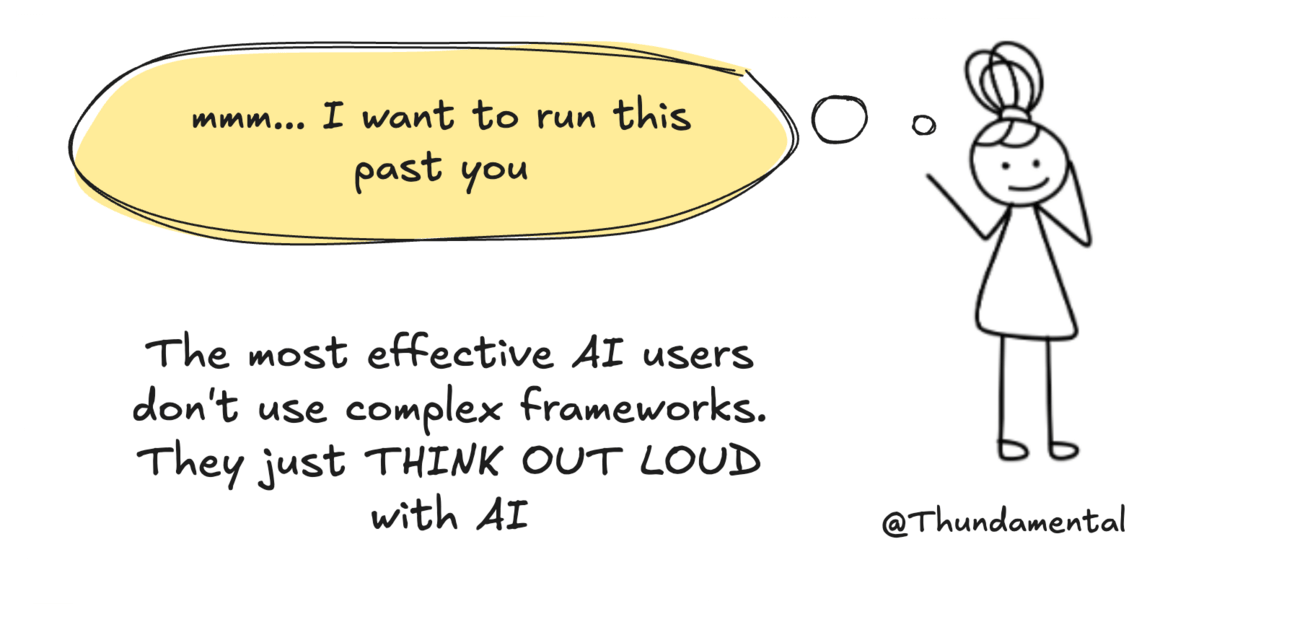
If you're downloading prompt templates, you're aging yourself in real-time.
Stop performing prompts and start having conversations. Ask messy questions. Build on ideas together. Let conversations evolve. Treat every interaction like an experiment in collaborative thinking rather than a transaction in automated productivity.
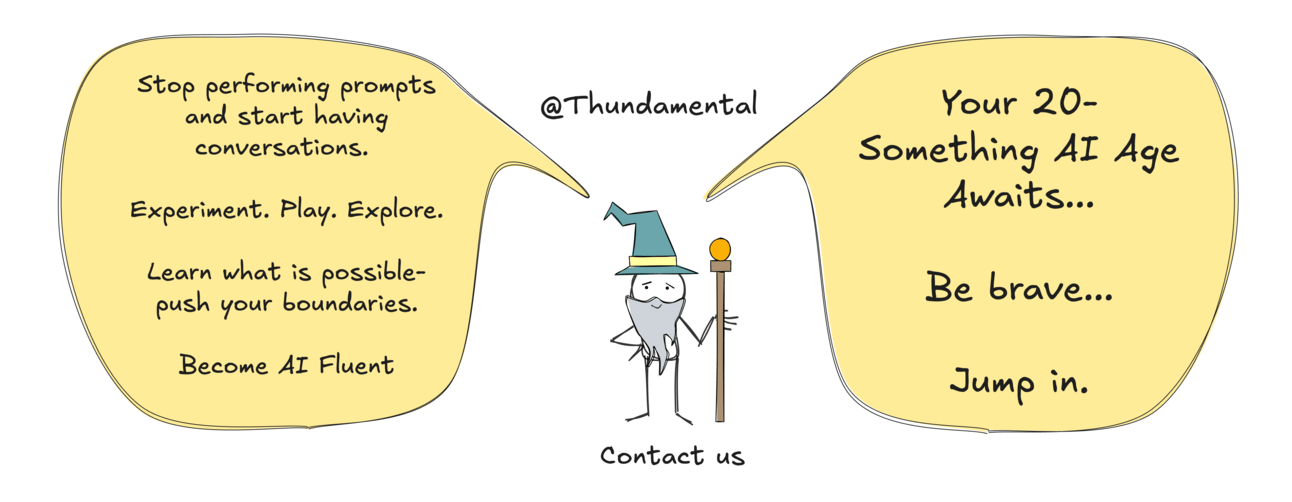
And if you're managing a team, take a hard look around the office. That 28-year-old who's supposedly 'digital native'? Their AI age might be pushing 67, and they're dragging your entire competitive advantage down with them.
Of course, knowing how to have better conversations is only half the battle—understanding what's actually possible (and what isn't) keeps you from looking foolish when the AI can't read your mind or predict the lottery numbers
Why Some People Adapt Faster
Gen Z moved quickly, but not because they're inherently more tech-savvy.
They adapted faster because they never learned to expect stupidity from their tools.
Growing up with Netflix learning their preferences and phones anticipating their needs, ChatGPT felt inevitable, not innovative.
But here's the plot twist: some of the youngest AI Ages belong to people in their 60s and 70s. Career academics and veteran consultants immediately recognized ChatGPT as the thinking partner they'd been waiting for their entire careers. Meanwhile, plenty of 25-year-olds are still using AI like Google with better grammar.
Intellectual flexibility beats chronological age every time.
The people getting transformational value from AI resist crystallisation like it's digital kryptonite. They keep experimenting even after finding something that works. They treat every conversation like a hypothesis, not a habit.
The Bragging Rights Are Real (And So Is the Advantage)
Having a young AI Age is about to become the ultimate intellectual flex. It's the new "I speak four languages" or "I ran a marathon last year." Except instead of impressing people at dinner parties, it's going to determine who thrives in the next decade of work.
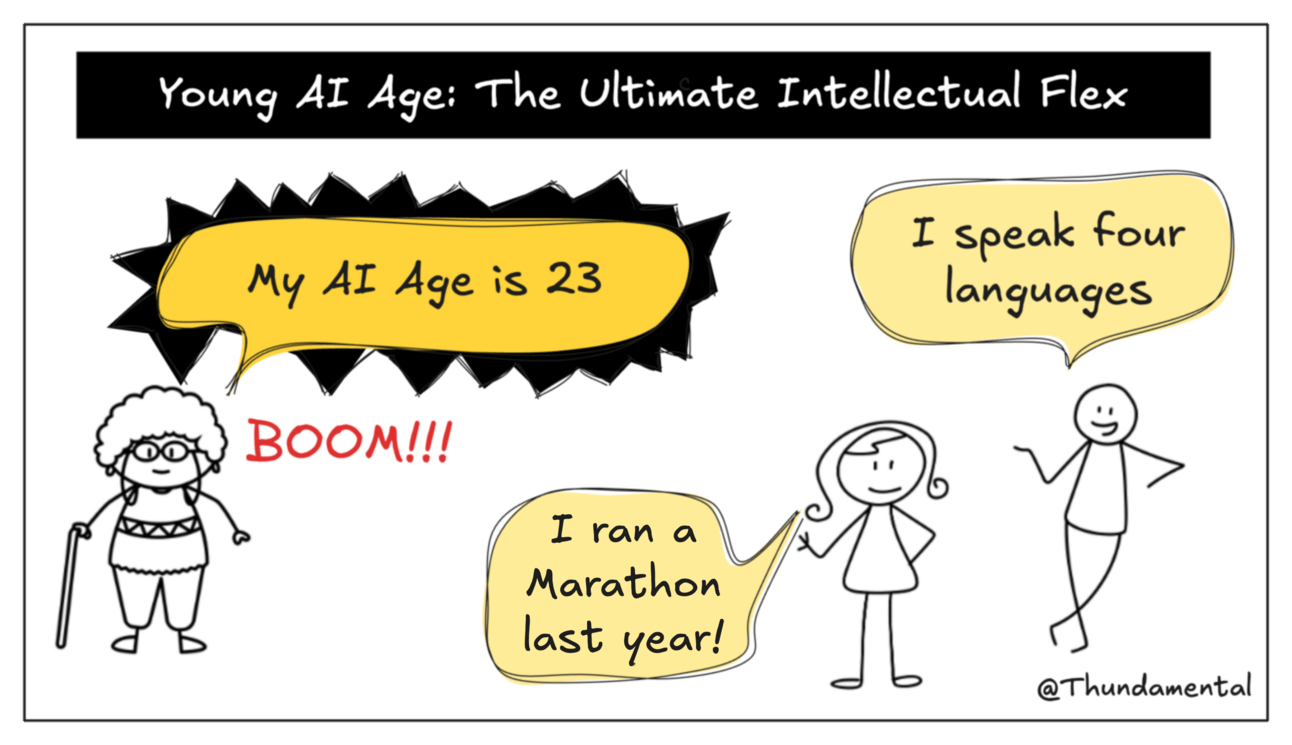
The people with young AI Ages aren't just using better tools—they're thinking in fundamentally different ways. They've figured out how to extend their cognitive capabilities through conversation. They've turned AI into intellectual leverage, not just digital convenience.
The scariest part isn't having a high AI age yourself—it's not knowing what your team's AI age looks like until it's too late.
That 28-year-old who's supposedly 'digital native'?
Their AI age might be pushing 67, and they're dragging your entire competitive advantage down with them.
So what's your AI Age? And more importantly, what are you going to do about it?
The future belongs to people who can dance with intelligence, not just command it.
The question isn't whether you'll eventually figure this out—it's whether you'll figure it out before everyone else does.
Your AI Age is showing. Make sure it's worth bragging about.
Want to explore how we can turn your 60 somethings team into 20 somethings in AI Age?
Let’s discuss the simple way to upskill and de-age your team.
👉 Schedule a free consultation and let’s get started.
If you forget everything else, remember this…
Your AI Age isn't about when you were born—it's about when you stopped learning.
Don’t want to miss our next newsletter? | Or, if you’re already a subscriber… |
